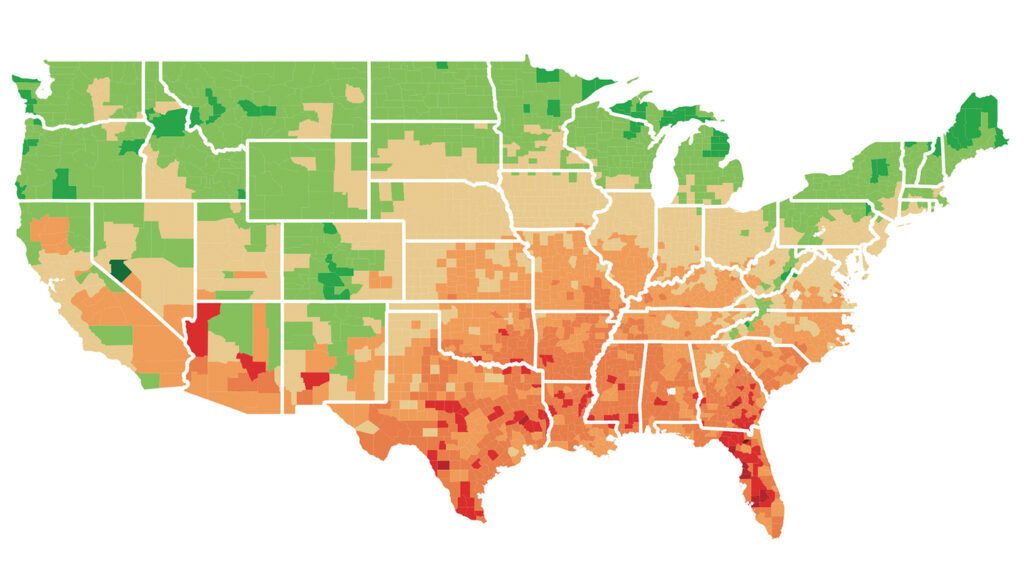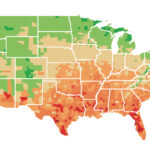The significant policies adopted by the major global powers, in this case, the United States, will play a defining role in international relations, global security, and even the broader geopolitical landscape of the 21st century as climate change remains a central issue. The U.S. has been at the heart of climate diplomacy and global environmental initiatives for quite some time, so the attitude to climate change will affect relationships between the U.S. and other countries as well as international geopolitics. Here is how the climate policy of the United States under different administrations might influence international geopolitics over the next years.
1. U.S. Climate Leadership and International Diplomacy
Under the Obama administration, the United States took the lead in international climate agreements, most notably the Paris Agreement. This positioned the U.S. as a leader in international diplomacy, driving aggressive global targets to further limit carbon emissions and ensure a sustainable future. With President Biden signing back into the Paris Agreement, it signals the intention of the U.S. to again lead the efforts in global effort to combat climate change.
Impact on Geopolitics:
Strengthening the Coalitions: Joining Paris Agreement and climate action opens up the door to strengthening alliances with European countries, which have been calling for forceful climate policies for long time. Ramping up could be stronger implementation of research cooperation in climate areas, renewable energy resources, and respective technology sharing.
Global Climate Leadership: Involvement of the U.S. can also inspire other nations to raise their climate ambitions, especially the emerging economies, so as to meet global-set targets. This may result in the global multilateral collaboration, such as in the G7 and G20 and actions that concentrate on sustainability of growth rather than on pure economic development.
At the same time, the U.S. needs to deliver on its commitments on emissions reductions and provide concrete solutions for financing climate action in developing countries. Otherwise, it might undermine its leadership role and lose trust with its international partners.
2. Competition for Green Technology and Energy Resources
The transition to clean energy technologies offers a challenge and an opportunity for countries in the new emerging industries in competing with each other. The U.S. will compete with China, the European Union, among others, to take the lead in renewable energy technologies, which encompass solar, wind, and electric vehicles. It will have full-fledged geopolitical implications.
Effects on Geopolitics:
Tech and Energy Diplomacy: A new energy security paradigm will be set by a power shift towards renewable energy globally. While China commits full investments to green technology, this leaves significant potential for competitive rivalry in the U.S. in the emerging new energy systems. However, U.S. policies such as subsidies on clean energy, tax credits on electric vehicles, etc., can propel the country to become a leader in the renewable energy sector.
Shifts in Strategic Energy Supplies: As dependence on fossil fuels reduces, the traditional energy-rich nations, such as Middle East countries, will likely see a reduction in their geopolitical influence. Conversely, nations controlling the supply of critical materials for green technologies, such as lithium for electric battery production or rare earth metals for wind turbines, will gain geopolitical leverage. This new geopolitics is dominated by large resource-rich countries, such as Australia and Democratic Republic of Congo, which will assume leading positions.
In the new landscape of this future order, countries that are leaders in developing green technology, like the United States and China, will define the new rules of the global economy, support new alliances, and define the new paradigm of energy security in the international system.
3. Climate migration and security
Climate change will, therefore, worsen global challenges like resource shortages, food insecurity, and environmental disasters. Sea levels have risen further to displace millions of people, extreme weather occurrence, and desertification. For instance, the U.S., because of its geographical locations and military power, will take a very prominent role in managing the aftermath of climate-induced migration.
Influence on Geopolitics
Climate migration will make countries change their perspective towards immigration policies and international cooperation on refugee protection. The United States may witness an influx of climate refugees arriving in the country from Central America, the Caribbean, and other vulnerable regions. The pressure on U.S. borders will severely impact America’s relationships with the neighboring nations, especially Mexico.
Military and Security Implications: The United States has one of the largest militaries in the world and could well be conscripted to act in response to climatic crises, including natural disaster responses and resource-based international conflict. In fact, the Pentagon’s recent acknowledgment of climate change as a national security threat recognizes this potential for climatically driven instability in these regions, especially Sub-Saharan Africa and the South Pacific. The U.S. will have to devise innovative policies to mitigate such risks and cooperate with the global community in order to avoid a climate change conflict.
Because climate change continues to induce large-scale displacement, the U.S. might have to take on a more assertive role regarding the source of those movements and international cooperation regarding climate resilience.
4. U.S.-China Rivalry and Climate Action
A crucial aspect in the determining of the future of global climate efforts is the relationship between the U.S. and China, which happen to be the world’s largest greenhouse gas emitters. The respective policies of both countries will determine whether global climate targets are met. While the Biden administration focuses on collaboration with China on climate issues, the two countries’ broader geopolitical rivalry could complicate their climate negotiations.
Effect on Geopolitics
Competition vs. Cooperation: The U.S. and China have been in competition with each other to dominate the world’s markets-clean energy is one such example. Both the countries are committed to reducing emissions, but they are also locked in trade tensions, rivalry in technological sectors, and military standoffs-the latter being very prominent in the Indo-Pacific region. This may lead them to stay away from toying deep climate cooperation in their relationship.
Climate as a Diplomatic Traction: At this point, as tensions within the global arena increase, climate change may well serve as a diplomatic tool whereby cooperation on climate issues acts as a sort of lever to balance competition. Or, not cooperating could fan distrust, thus poorly effectively letting the globe act upon climate matters.
The result of U.S.-China climate relations will determine much more than the environmental futures of both these countries; it will also have much to say concerning the contours of the international order’s stability, especially on African, Asian, and Arctic shores.
5. The Shift in Global Economic Power
Climate change and the transition to green economies could re-shape global power structures. As countries like China, the EU, and India increasingly adopt green policies, so will pressure build on the United States to expedite its own climate efforts or fall behind in global economic competition. The integration of climate policy with trade, investment, and economic growth will define the future of the United States’ involvement in the global economy.
Geopolitical Impact
Global Trade Dynamics: When the world shifts towards clean energy, new industries would proliferate and ancient ones wither away, including coal, oil, and gas. The US economics will have to change in response. Green technologies, carbon tariffs, and sustainability standards would shape up the global economic map and define the position of the US in that dynamic.
Thus, U.S. climate policies will play a significant role not only for the domestic agenda of the nation but also for its global position. It may be a question of forming new partnerships, competing for green technology, or figuring out security implications of climate change. The road ahead for geopolitics will be determined by the United States through these efforts. How it navigates this complex landscape will define the path of the world for future climate resilience and sustainable development.

Posted inGeneral

